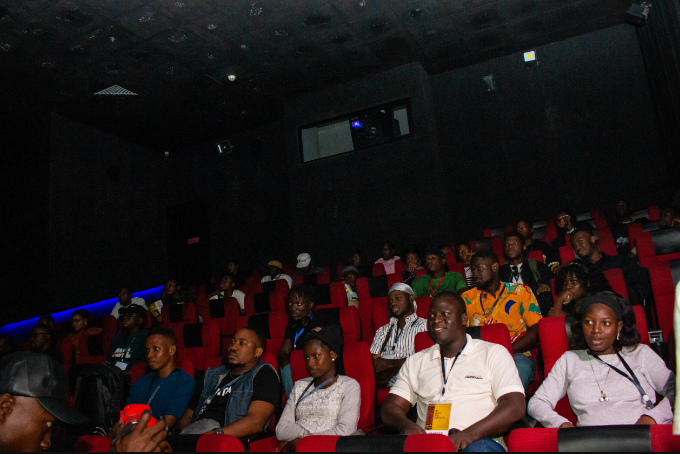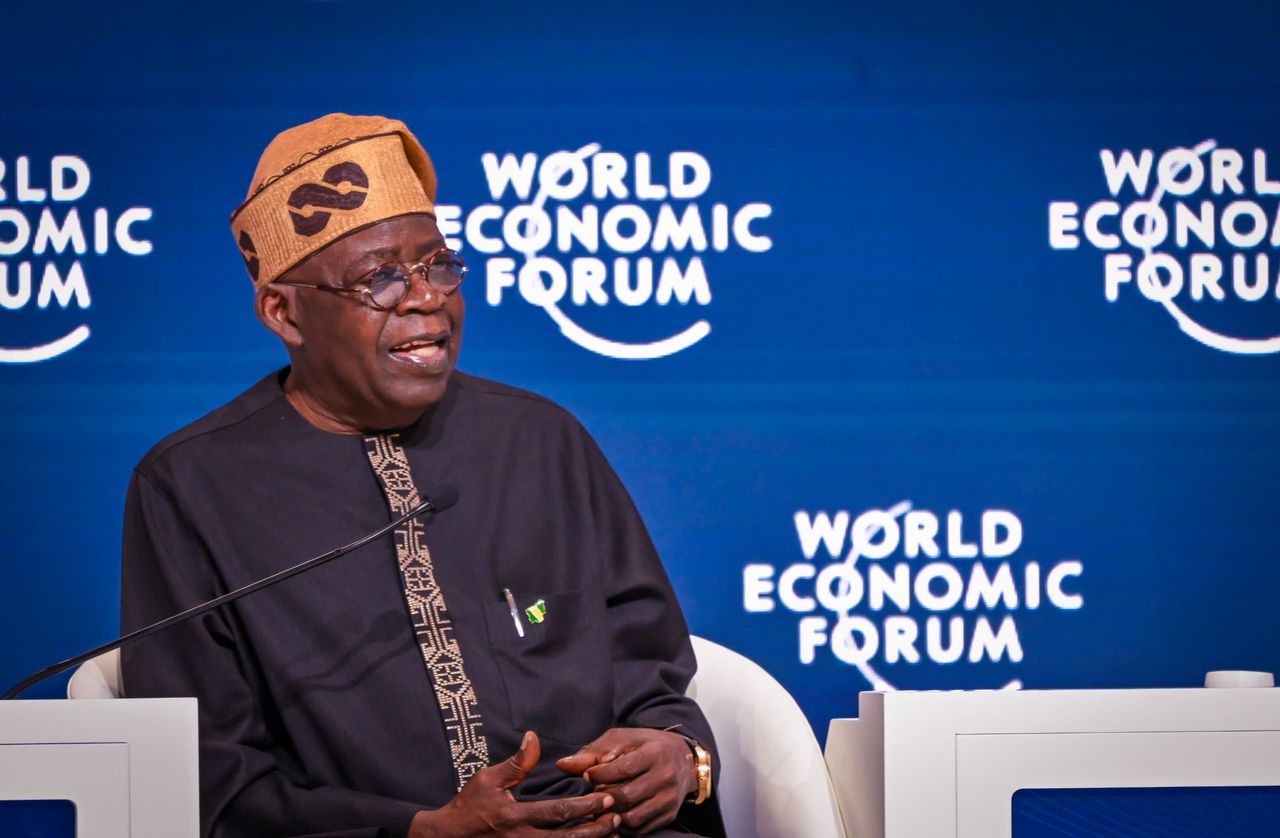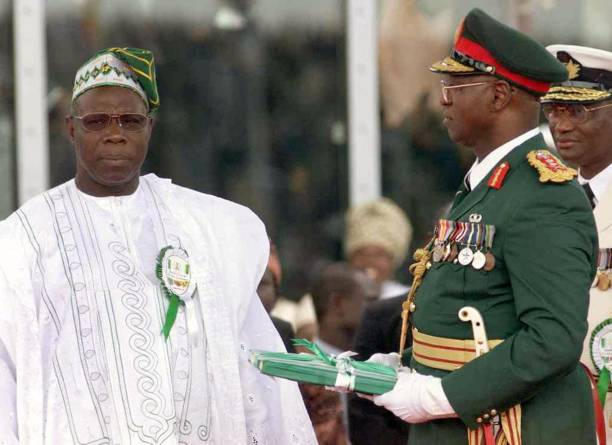In the midst of the present gloom that describes much of Nigeria’s socio-economic space, it’s easy to be engrossed in the negative narratives that constantly beg for reversal. But hopes do appear from various angles and in different forms. The release of the Nigerian Box Office Year Book 2023 the other day by FilmOne Entertainment, an industry production and distribution company, provided a chance to promote the progress that should gladden the practitioners, point the government to a likely target of meaningful development and reinforce the faith and commitment of other stakeholders.
First the figures. According to the organisers of the occasion, the nation’s organised cinema recorded N2.25 billion in ticket revenues in the first quarter of this year alone. Of that amount, only one film, Funke Akindele’s “A Tribe Called Judah,” accounted for 27 percent. The viewers admitted into cinema halls within that time were 596,609. The same period in 2023 yielded N1.5 billion and 620,477 watchers. The average ticket price was N3,765 and N2,479 in Q1 of 2024 and 2023 respectfully. The 46 percent increase in the box office yields even when the ticket prices went up is clearly remarkable considering the current harsh financial realities.
The reduction in attendance (not drastic, it must be stated), however, may also indicate the factors for the varying capacities of individuals and families to classify this mode of visual entertainment as a priority. Also notable about the 2024 opening quarter is the churning out of at least 40 films by Nigerian professionals. While no one expects all of them to be top-notch, those looking for more proofs of Nollywood’s virility, versatility, prolificity, or outright recklessness, have their hands full through its activities early this year alone.
Equally interesting and corroborative of those encouraging stats are the ones produced much earlier by the Cinema Exhibitors Association of Nigeria (CEAN). Its records show that cinema houses sold N1.2 billion worth of tickets, with the viewership of 322,833, in January this year – a 46.5 percent improvement over that of January 2023 which brought in N819 million. A clear positive beginning. CEAN also put last year’s total cinema ticket earnings at N7.35 billion, with 2,606,891 in attendance as against N6.94 billion in 2022.
Advertisement
Some of the largest-grossing films produced by the country’s film industry in 2023 include, in no particular order, “A Tribe Called Judah”, “Malaika”, “Merry Men 3”, “Something Like Gold”, “Orisa” “Kesari”, “Ada Omo Daddy”, “The Kujus Again”, “A Weekend to Forget” and “Ahamefuna”. “Tribe”, Nigeria’s highest all-time sale, a superlative product by most accounts, is set to remain exceptional for a long time. At the initial count, it raked in N1.4 billion from Nigeria, N132 million from the United Kingdom and N9.29 million from the rest of Africa. This audacious success will certainly continue to command the attention of researchers of Nigeria’s very productive but relatively under-patronised sector, especially at governmental levels.
We mustn’t stay on this self-defeating path much longer. The social and economic benefits of the cinema are simply too robust to be ignored by any government sitting over the affairs of a country this huge and dynamic. Not to mention the cultural aspects of any nation that wishes to be taken seriously in the comity of progressive countries. Take for instance two societies, American and Indian, which have developed their own film industries to the point of captivating the world’s admiration, attention and respect for decades. Their values, ways of living, trends and other peculiarities are well captured by both Hollywood in the US and Bollywood in India.
During the developmental stages of those leading lights of global film-making, their domestic markets were well served to the point of saturation. That helped the patrons, producers, directors, actors and other participants to put their acts together, and improve on the quality of their works in readiness for launching overseas. Homework done, the export of their films became inevitable. Profit-making being at the heart of enterprise can’t be ruled out of the rationale for the processes of making what had started as local operations in America and India trans-continental. Characteristically, the growth of film production in those nations matched the explosion of the viewing locations.
Advertisement
Their large populations meant that even modest promotional activities would ensure the volume of patronage that could guarantee sustainability and profitability. But it so happened that the forces of capitalism there identified the potentials early and went into action. The massive investments in critical areas and the sort of push that couldn’t be hindered by market and environmental factors ensured that the industry did thrive against all odds. Today, blockbusters that shake the world are released regularly from those established film sources.
There are always lessons to pick up from frontrunners. Vital though is the will to apply them. Luckily for Nigeria, its own film industry has for over three decades significantly caught the interest of the rest of the planet. Of course, the history dates way back but it went into higher awareness and reckoning with the advent of mass video productions. Like its forebears, as the audiences grew, so did Nollywood in its quest to attain excellence in all the segments. That aspiration guided it into the sphere of more celluloid production and, predictably, bigger and happier news for cinema hubs.
There can’t be any better advertisement of the potentialities of Nigeria’s film industry than the recent data on the performance of the viewing components across the country. Achieving all that at a most economically hostile era in our national life is a pointer to the numerous opportunities we have lost to reposition the nation for true greatness. Even with the ascendancy of the information and communication technology (ICT) and knowledge economy as a whole, entertainment of which cinema is an indispensable part has not and will never be pushed into oblivion.
Former President Muhammadu Buhari arrived at the scene and made himself substantive minister of petroleum, ostensibly to demonstrate the centrality of that portfolio to nation-building. President Bola Tinubu has also done same. It’s difficult to convince Nigerians how that has enhanced the chances of oil, a product in abundance here but with diminishing values worldwide as a result of the growing presence of and campaign for green energies. A more purposeful chord would have been struck if Tinubu had raised the bar by focussing on an area which has an active chunk of the population as its present or latent patrons, clients and customers.
Advertisement
This tax-loving administration should also be seen to pursue productivity vigorously. Whatever it is that makes Nigerians savour the cinema experience with sustained excitement in the face of their threatened purchasing power can make it one avenue for wealth creation waiting to be tapped by business-minded men and women who may be handicapped at the moment. Who are Tinubu and his team waiting for to install the enabling climate? Now, locally produced films compete favourably with the foreign ones, if not better. That means the industry in its entirety needs help from above to sustain its competitiveness and achieve an enduring appeal to the audiences at home.
It’s worth noting that for long, breweries kept announcing respectable balance sheets until recently when they started posting substantial deficits. Nigerian drinkers probably turned to cheaper brews for succour. Could it be that the pull to visit the cinema is stronger than any devotion to the bottle? Whatever the answer, a healthy reel culture is a win-win. Viewers are satisfied. Practitioners become richer and more fulfilled. More funds flow to government. The country’s profile soars.
Ekpe, PhD, is a member of THISDAY editorial board.
Advertisement
Views expressed by contributors are strictly personal and not of TheCable.
Add a comment







